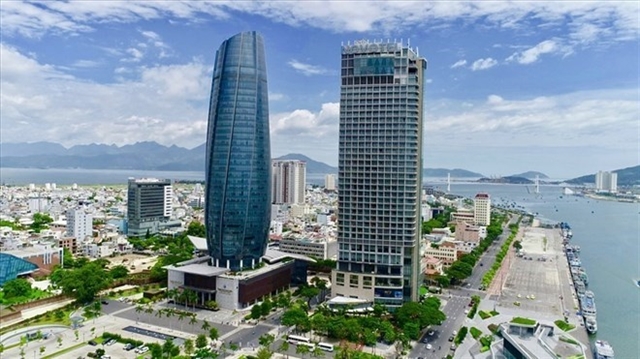The central city of Da Nang is actively collaborating with central ministries and agencies to swiftly implement specific mechanisms and policies for the city’s development, particularly regarding the pilot establishment of a free trade zone (FTZ).

Đà Nẵng City strives to early pilot free trade zone model. — Photo laodong.vn
The central city of Đà Nẵng is actively collaborating with central ministries and agencies to swiftly implement specific mechanisms and policies for the city’s development under the National Assembly's Resolution 136/2024/QH15, particularly regarding the pilot establishment of a free trade zone (FTZ).
According to the advisory team for the Đà Nẵng FTZ project, the city has proposed ten potential locations for the complex, which will encompass areas for logistics, manufacturing, commercial services, innovation, MICE tourism and duty-free shopping on a total area of nearly 2,500 hectares.
By 2030, the Đà Nẵng FTZ aims to contribute 1-2 per cent directly to the city’s gross regional product (GRDP) and create approximately 21,000 jobs. By 2040, the zone is expected to account for 9.5 per cent of Đà Nẵng’s GRDP and attract around 90,000 workers. The figures will increase to 17.9 per cent and 127,000 by 2050.
At a recent consultation workshop for the FTZ project, Deputy Chairman of the Đà Nẵng City People’s Committee Trần Chí Cường emphasised that Đà Nẵng has thoroughly studied various FTZ models from around the world. While other localities in Việt Nam have proposed FTZ models, only Đà Nẵng has been selected for a pilot project, underscoring the government's confidence in the city’s potential and advantages.
He stated that Đà Nẵng and relevant ministries are focused on creating a model that aligns with global development trends while maximising the advantages and potential of Đà Nẵng, the central region, and Vietnam in the competitive FTZ landscape.
Cường highlighted that, in addition to Resolution 136, Đà Nẵng is committed to making bold strides towards breakthrough developments and will continue to propose new mechanisms and policies to advance the FTZ initiative. — VNS
Read original article here